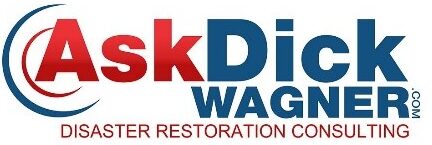 Filing a claim:
Filing a claim:
On the face of it, forcing a policyholder to pursue litigation can make sound economic sense. If the claim is $50,000, the policyholder is going to have to spend a great deal of time getting their money. So, the claim gets lost, delayed, or is undervalued all in a ruse to frustrate the policyholder and drive them to agree to settle for an amount much less than the actual value. It works all too often.
Insurance companies employ entire departments of people called actuaries. One definition of an insurance actuarial is “An Actuary is responsible for analyzing the possible outcomes of the types of events that could potentially cause policyholders to make claims against their insurance policies.” That about says it all.
It is the job of actuaries to also weigh the likelihood litigation will take place in the case of a loss, the likelihood a policyholder will seek and obtain competent legal counsel, pursue a claim, etc. This is referred to as “risk management,” and while these people do not make decisions regarding claims, they do provide the decision-makers in insurance companies with the “odds.”
Payment of claims, however, is by no means an easy business. Insurance policies are complex and few policyholders carefully review their policies to assess the exclusions, omissions, etc. prior to filing a claim.
On the other hand, lawsuits have proven that some of the nation’s biggest insurance companies have denied valid claims in an attempt to boost their bottom lines. These companies have even rewarded employees who would not pay claims, and when all else failed, engaged in outright fraud to avoid paying claims.
 Stall. Delay. Fill out more forms. Wait them out!!!
Stall. Delay. Fill out more forms. Wait them out!!!
Legal case histories are full of insurance companies routinely delaying claims, knowing full well that many policyholders will simply give up. Some have gone as far as to lock paperwork away in safes. Undoubtedly, the most shameful use of delay tactics has been by long-term care insurers, who often take advantage of their policyholders’ age and ill health.
In the words of one regulator, “the bottom line is that insurance companies make money when they don’t pay claims . . . They’ll do anything to avoid paying because if they wait long enough, they know the policyholders will die.”
Get Qualified Help!
If you or someone you know is battling with an insurance company over a claim, the best course of action is to find an attorney in your area with trial experience in insurance bad faith. This specialty is unlike all others. It is critical that you ask how many actual insurance bad faith trials the attorney has participated in to assess their experience level. If the number is low, keep looking.
It is easy to claim experience and another thing entirely to have built a career fighting insurance bad faith.
The best free and accurate source of finding an insurance bad faith attorney in your area is at http://www.martindale.com. Attorneys are listed in this industry-specific directory by specialty and the directory will provide vital information such as years in practice, professional credentials, etc. Martindale Hubbell is considered the legal bible.
Finally, remember that not all insurance companies are out to refuse payment of claims. Mistakes do occur that derail claims, and human errors can lead to inappropriate findings. If, however, you have made your best effort to resolve your claims with an insurance company and the result remains unsatisfactory, seek the advice of a qualified insurance bad faith attorney.
Bruce E. Sulzner, is a San Diego-based trial attorney with more than 30 yrs experience in insurance bad faith, personal liability, and medical malpractice defense. For more information, contact Bruce E. Sulzner, at 619-238-8550.
Dick Wagner is a National Marketing Coach and Commercial Marketing Consultant. 419-202-6745
